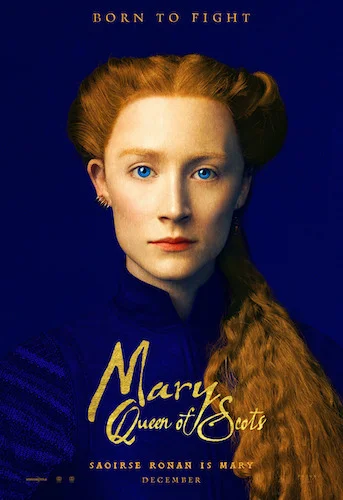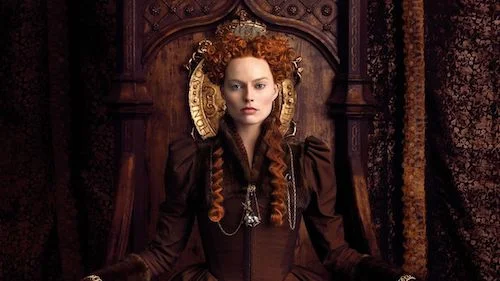Mary Queen of Scots
Oh Mary, Mary, quite contrary, why does the pacing always vary? Mary Queen of Scots is a very interesting first look at what Josie Rourke is able to bring to the screen. Her theatre expertise is without question, and so many of the ideas she brings to her cinematic directorial debut are great conceptually. There is a modern look at how the concept of integration may have been frowned upon by a super religious regime. There is a focus on how women, even the queen herself, has to answer to men first (until she has had enough). There is a modern take on a historical tale, and the many embellishments are there for at least an artistic purpose.
Nonetheless, maybe the execution of the film -- which, again, has a lot of deliberation for the reasons why certain events happen here -- is the biggest downfall here; this might have been the result of the developmental hell the film was in for over a decade. Saoirse Ronan was slated to play Mary, Queen of Scots for many years, and Scarlett Johansson turned down the role thirteen years ago before this even took place. Usually, a film that festers for so long is not a good sign. With the gargantuan leaps between how each scene feels, there is no singular identity to this film. Some early moments feel like they were made for television. Other artistic shots are much more poignant. It is almost like the scenes in Scotland and the ones in England are completely different films. It truly is bizarre.
Part of this might have to do with the acting as well. Ronan as Mary is as great as we have ever seen her. We know she can mask her voice and match one of someone else. We know she can dominate a scene. She plays each moment very humanistically, despite the films penchant to make each line an exposition-heavy-history-lesson. She has warmth in her gaze, either of fiery rage or the kindest love. It is a great opportunity to see Ronan take on work like this, because it makes me curious to see how many other theatre-like works she can take a hold on (or even just the stage period). Having said that, Ronan steals each scene, but Margot Robbie steals the entire film as Queen Elizabeth. Her ability to make you feel as though you have been transported elsewhere is uncanny. She carries the powers vested in her on top of a nervousness based on her own being. She is hard on herself, but confident in what she can do. It is such a nuanced performance, that you wish there were more scenes featuring Queen Elizabeth's fight with herself.
Of course the film is focused on Queen Mary and the many events that lead to her downfall. It is too bad that so many moments feel lethargic more than enticing, like we are presented facts but not told a story. With so much going on, it really should not feel like it is lingering (and yet it does). Maybe it's the personal-like camera style. Perhaps it is the repetitive and rather neutral score. There isn't much to dislike in this film (outside of an absolutely pointless fake out during the coveted scene where Mary and Elizabeth finally meet face-to-face), but there is a hell of a lot that could have been better.
Most of the film is meant just to lead up to its climax, and it shows. So much promotional material shows Mary and Elizabeth going head to head, but it is merely a single scene that feature the two. There is nothing wrong with this one scene existing, but the entire faith of the film resting on that one moment makes for a weaker film in general. The intensity that the theatre influence could have brought to the film is all but gone, aside from the acting leads.
Andreas Babiolakis has a Masters degree in Film and Photography Preservation and Collections management from Ryerson University, as well as a Bachelors degree in Cinema Studies from York University. His favourite times of year are the Criterion Collection flash sales and the annual Toronto International Film Festival.





